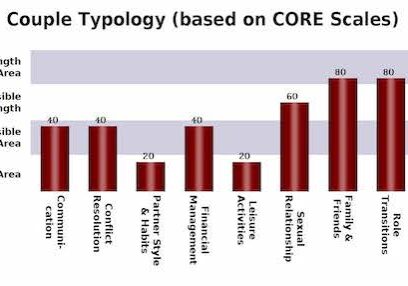It is highly likely if you don’t have indirect behavior, somebody in your world does. I see it show up many times in various forms of relationship. One person assumes the other knows what they want because they are thinking it. The other person has no clue what is wanted since what is wanted has not been vocalized or identified using any other form of communication.
This is one example of indirect behavior and when read out loud sounds ludicrous. However, it is very real and both parties end up being very confused for different reasons and conflict is, many times, the result. Many times this person, called a Supine, is his or her own worst enemy.
This person carries an unspoken sign boldly declaring “I DO NOT WANT” when in fact they want and need very much. Often they do not receive since nobody knows of their need because of their indirect behavior.
God created us as body, soul and spirit. The soul has three areas: the mind, the will, and the emotions. I will elaborate some on how indirect behavior shows itself in each of these three areas.
The Mind:
This person needs a great deal of social interaction. Because they view themselves as worthless they assume they are neither wanted nor needed. They are very dependent on others to recognize their need and personally invite them with the insistence that they are needed. This insistence must be viewed as genuine or they will not participate. If seen as genuine they will participate as a people person does. This is confusing to others that don’t understand how this person can be the life of the party and other times be standing at the edge of the group being ‘stand-offish’.
When others do not “read their minds” and provide them with a genuine invitation, this person will become very angry. They do not view it as anger though. Rather they will say something like, “my feelings are hurt.” This anger will cause them to withdraw deeper internally as a means of protection from further perceived rejection and pain.
The Will:
It is very difficult for this person to make decisions independently. They need somebody to help make the decisions in their life and also share in the responsibility of the decision. Because of their indirect behavior decisions are many times made without them being allowed to take part in the decision making process. This causes extreme internalized anger.
This person is subject to abuse more than any other person. The abuse will start in childhood and continue on through life. Other people may look at this person as a domineering person. However, they are only attempting to manipulate others into taking care of them. This individual is really weak-willed, wanting to say “no” but not knowing how too.
The Emotions:
In this area, this individual suffers from an “indirect behavior conflict” by expressing very little love and affection and appearing not to want deep personal relationships. In reality, they need a great deal of love, affection, and approval and they desire deep personal relationships. Because of their indirect behavior, people around them, who are unable to read their minds, are unaware of their intense need. As a result, this person is usually frustrated and unfulfilled because their deep affection needs are seldom met.
This person will absolutely respond to love, affection and approval AFTER the other person initiates it and fears of rejection have subsided. This ‘other person’ seldom shows initiative because the Supine has sent a strong ‘signal’ indicating they neither want nor need love, affection and approval.
As you can see, this indirect behavior can be very confusing both to the individual that has it and to those around them. Much of this information comes from a course entitled, “Creation Therapy.”
If you have indirect behavior or you think someone close to you does, such as a spouse or child, it would be worth having a temperament report generated. Doing so would give you understanding and provide valuable information on how to address the different aspects of indirect behavior.
Feel free to contact me for further information.
You might also like these articles...
Truth Will Prevail!
Truth will prevail! Isaiah 59:14: “Our courts oppose the righteous, and justice is nowhere to be found. Truth stumbles in the streets, and honesty has been outlawed. From their inception, the Israelites were a people who believed in one God and that it was He they should serve only. As time passed, memories faded, and generations gave way…
Idealistic Distortion
Idealistic Distortion is a term Prepare/Enrich uses for pre-marital or marriage counseling. Idealistic Distortion measures the extent to which a person distorts the relationship in a positive direction. A scale of 1-100 is used to measure Idealistic Distortion. A score below 40 indicates a more realistic approach to describing the relationship. However, a score above…
The Boiling Point
The boiling (anger) point of water is 212 degrees Fahrenheit or 100 degrees Celsius. Recently, I took a small saucepan and filled it halfway with cold water. I then placed the saucepan on one of the gas burners on the stove and turned the heat to medium high. With the excitement of a little boy,…




